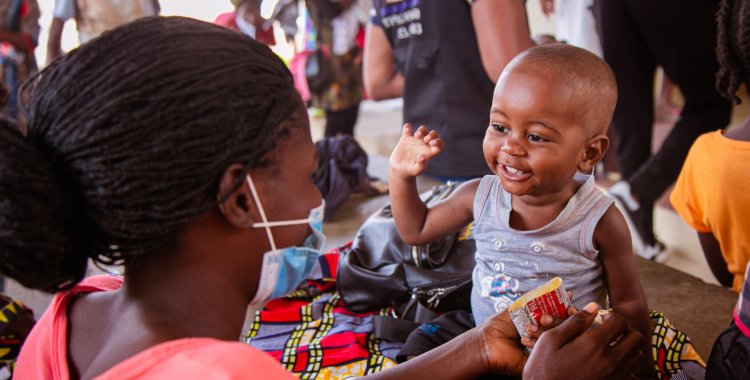In other words, on average, for every thousand children born in Angola, 52 do not survive until they reach the age of five, according to data presented by Rosa Moreira during the Global Forum for Innovation and Action on Immunization and Child Survival – 2025.
The official indicated that, in addition to the reduction in deaths of children under five, which fell from 68 to 52 per thousand live births between 2015 and 2024, Angola also reduced the neonatal mortality rate from 24 to 16 per thousand live births.
In the same reference period, infant mortality fell from 44 to 32 per thousand live births, according to statistics presented by Rosa Moreira.
"When we talk about the main causes of morbidity [disease] and mortality in children under five, malaria leads the way, followed by acute respiratory infections, acute diarrheal diseases, and chronic malnutrition," she said.
Angola also warned of the high mortality rate among adolescents, citing obstetric complications due to teenage pregnancy – which, according to the data presented, stands at 27 percent –, sexually transmitted infections, and road accidents and other types of trauma as causes.
The official added that Angola will move forward with incentives aimed at health professionals in rural areas, including their rotation, and will advance by 2029 with the training of at least 40,000 professionals to treat children under five years of age.
"We want to implement a new vaccination strategy that will begin in 2025 and continue until 2029, and we are counting on the introduction of new hexavalent vaccines and the malaria vaccine," said the president of the Technical Advisory Committee for Vaccination in Angola.
The Mozambican president expressed concern on Tuesday about the slowdown in the reduction of infant mortality in sub-Saharan Africa.
"We are concerned that Africa still bears the highest number of deaths among children under the age of five worldwide. Particularly in Sub-Saharan Africa, we remain concerned about the slowdown in the reduction in child mortality that has been recorded in recent years," said Mozambican President Daniel Chapo at the opening of the Global Innovation and Action Forum for Immunization and Child Survival – 2025, which runs until Thursday in the capital of that country.
More than 300 delegates from 29 countries, including ministers and deputy ministers of health, scientists, academics, and civil society organizations, are participating in the Forum in Maputo.
The meeting is organized by the Ministries of Health of Mozambique and Sierra Leone and the Government of Spain, with the collaboration of the "la Caixa" and Bill and Melinda Gates Foundations, and UNICEF.
According to the director-general of the Mozambique National Institute of Health (INS), the forum will discuss scientific solutions that will help the world reposition itself to accelerate the fight against child mortality, including the demand for a new political commitment to this cause.
Samo Gudo also noted a "historic and unprecedented reduction" in child mortality worldwide in recent decades, highlighting that, between 1990 and 2023, the number of deaths among children under five fell from approximately 12.8 million per year to 4.8 million.
Despite these advances, global health organizations have recorded a slowdown in the rate of mortality reduction in this age group since 2015, highlighting the risk that at least 60 African countries will not reach the Sustainable Development Goals (SDGs), according to World Health Organization estimates put forward by the same official.







